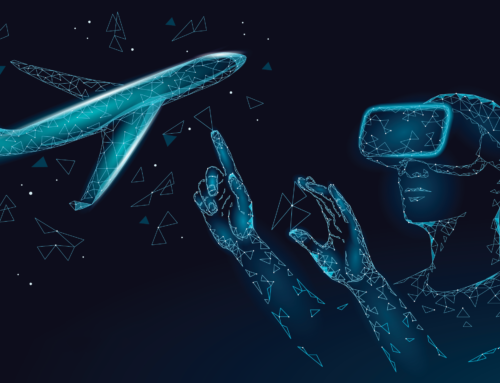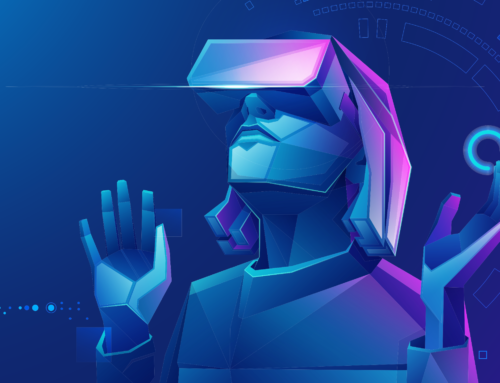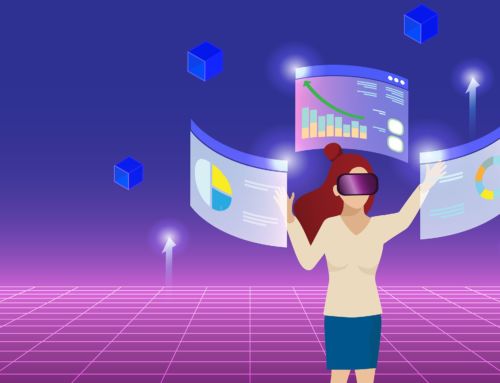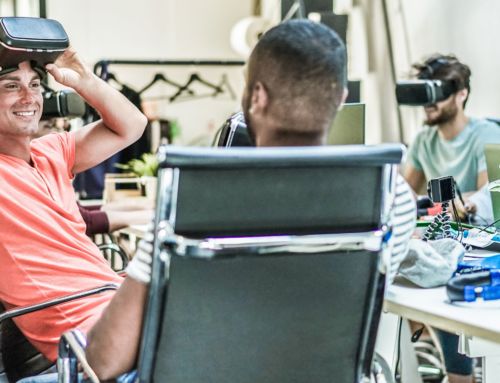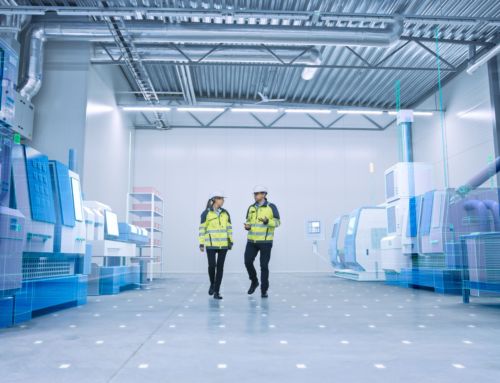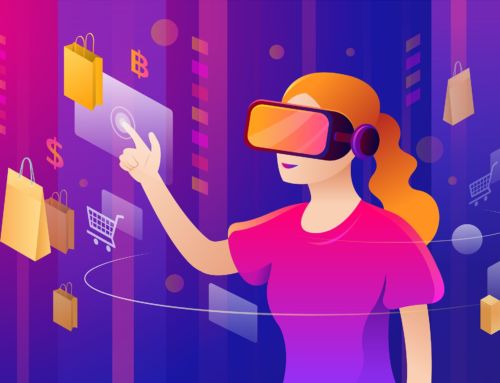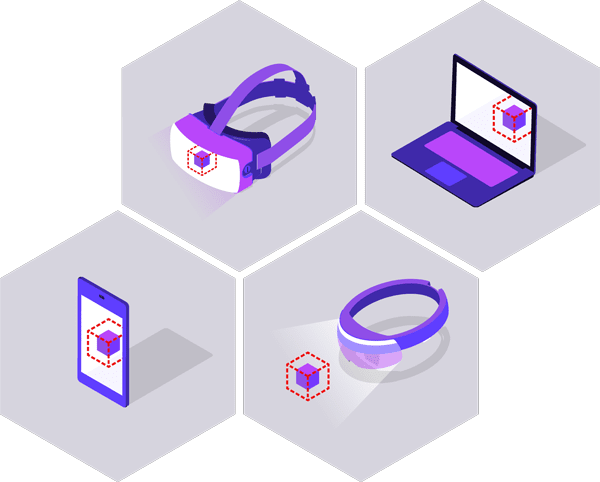Since the start of the Covid pandemic, working remotely has become the new normal for many workers. But although remote working has helped many businesses keep running, this has disrupted traditional training and professional development programmes for many employees.
For companies to stay ahead of the game, as well as attract and retain the best talent, providing a rigorous training programme is crucial. It not only strengthens a company’s skills base and improves productivity and innovation, but it also motivates employees, helps to improve their wellbeing and boosts their confidence. It’s a win-win all round.
As the pandemic has been a catalyst for the geographical fragmentation of workplaces, how can remote training support individuals, teams and companies today, as well as providing a blueprint for the future?
Whatever your budget or training needs, there are a broad range of remote training solutions that will help your team members to learn and your business to grow. Here’s some great examples!
1. Zoom
A mainstay of most companies during lockdown for meetings and keeping in touch with colleagues and clients, video conferencing platforms such as Zoom offer functionality that stretches beyond simply staying in touch; they can also be used as an effective training tool. With the potential to hold high quality live training sessions, as well as on-demand viewing of recordings, learners can access video and audio content, whiteboards and polls. Additionally, it provides direct contact with trainers, as well as breakout rooms for discussions with peers.
Advantages include:
- Accessibility and familiarity. With video conferencing platforms becoming a daily tool for many remote workers, Zoom is widely available and easily accessed on various devices, from PC computers to mobile phones.
- Low cost. Zoom offers an affordable training solution that can be rolled out across hundreds of employees in any session.
- Flexibility. As courses can be delivered with easily editable presentations, courses can be easily amended when needed.
2. Degreed
Degreed offers a scalable training solution that empowers workers to share and apply what they’re learning. It enables HR professionals the chance to automatically personalise development for all team members’ skills, roles, and goals, and weave learning into people’s work. Learning is matched to skills needs through personalised learning pathways, which includes guides, videos, courses, documents and further reading.
Advantages include
- Multi-language support from teams based across the world, making it an ideal tool for deployment in multi-national companies;
- Skill certifications are issued to verify learning, get recognition for new skills and keep learners on track.
- Easy integration with other platforms such as FutureLearn and Skillshare.
3. Looop
Cloud based learning management systems such as Looop offer tailored access to training, providing an organised space that combines content into an intuitive learning path. Based around the provision of resources rather than courses, Looop is employee focussed, as content is on-demand and supported by team chat or phone contact with trainers and fellow learners. Quantitative learning and development data can be easily benchmarked against business metrics, giving you a clear picture of how training interventions are performing.
Advantages include:
- Real-Time tracking. Training compliance can be monitored, so trainers can quickly understand what works and crucially, what doesn’t, helping to improve content.
- Improved engagement. As learning paths can be personalised and intuitive, training is more likely to be relevant and meet the needs of the learner.
- Integrates seamlessly with existing platforms. In addition to being mobile friendly, Looop works with widely used systems including LinkeIn Learning, Slack and Microsoft Teams.
4. VISIONxR
By harnessing the power of immersive technologies, VR platforms such as Future Visual’s award winning VISIONxR(™) take remote learning to the next level. VISIONxR recreates real world scenarios in a digitally created space, so that teams can train together. Rather than replicating classroom based learning techniques, VISIONxR allows teammates to access practice based and bespoke training. This makes it an ideal tool for training people who need to develop highly technical, as well as process driven skills.
Benefits include:
- Real life problem solving. Trainees can get hands-on experience that relates directly to their work retention of learning to enhance performance
- Repetition. Training sessions can be repeated numerous times to help build muscle memory and perfect techniques
- Collaborative learning. In addition to building an individual’s skills base, VISIONxR can also improve ways that teams work together, helping to streamline processes and practices.
- Removes geographical limitations. As workforces become more geographically fragmented through the trend towards internationalisation and remote working, VR training platforms provide a shared space for individuals from across the globe to access practical training together.
- Measurability and instant feedback. VR training sessions can be monitored in real time, giving trainers the chance to offer advice and prompts. Evaluation is also built into VR experiences, so performance can be easily measured and fed directly into HR records.
Conclusion
Training is such an integral part of any successful business and crucial for the wellbeing of employees. But in these challenging times – and beyond, taking an innovative approach to professional development is needed.
Remote training tools are evolving and offering a diverse range of support to companies looking to upskill their teams. From replicating more traditional classroom experiences through to fully immersive, practice based collaborative learning, the future of training isn’t due in the remote future – it’s here now. So what are you waiting for? Upskill your company’s training programme today to futureproof your workforce for tomorrow.
To get in touch and discuss your next project contact us here: https://www.futurevisual.com/contact/
Since the start of the Covid pandemic, working remotely has become the new normal for many workers. But although remote working has helped many businesses keep running, this has disrupted traditional training and professional development programmes for many employees.
For companies to stay ahead of the game, as well as attract and retain the best talent, providing a rigorous training programme is crucial. It not only strengthens a company’s skills base and improves productivity and innovation, but it also motivates employees, helps to improve their wellbeing and boosts their confidence. It’s a win-win all round.
As the pandemic has been a catalyst for the geographical fragmentation of workplaces, how can remote training support individuals, teams and companies today, as well as providing a blueprint for the future?
Whatever your budget or training needs, there are a broad range of remote training solutions that will help your team members to learn and your business to grow. Here’s some great examples!
1. Zoom
A mainstay of most companies during lockdown for meetings and keeping in touch with colleagues and clients, video conferencing platforms such as Zoom offer functionality that stretches beyond simply staying in touch; they can also be used as an effective training tool. With the potential to hold high quality live training sessions, as well as on-demand viewing of recordings, learners can access video and audio content, whiteboards and polls. Additionally, it provides direct contact with trainers, as well as breakout rooms for discussions with peers.
Advantages include:
- Accessibility and familiarity. With video conferencing platforms becoming a daily tool for many remote workers, Zoom is widely available and easily accessed on various devices, from PC computers to mobile phones.
- Low cost. Zoom offers an affordable training solution that can be rolled out across hundreds of employees in any session.
- Flexibility. As courses can be delivered with easily editable presentations, courses can be easily amended when needed.
2. Degreed
Degreed offers a scalable training solution that empowers workers to share and apply what they’re learning. It enables HR professionals the chance to automatically personalise development for all team members’ skills, roles, and goals, and weave learning into people’s work. Learning is matched to skills needs through personalised learning pathways, which includes guides, videos, courses, documents and further reading.
Advantages include
- Multi-language support from teams based across the world, making it an ideal tool for deployment in multi-national companies;
- Skill certifications are issued to verify learning, get recognition for new skills and keep learners on track.
- Easy integration with other platforms such as FutureLearn and Skillshare.
3. Looop
Cloud based learning management systems such as Looop offer tailored access to training, providing an organised space that combines content into an intuitive learning path. Based around the provision of resources rather than courses, Looop is employee focussed, as content is on-demand and supported by team chat or phone contact with trainers and fellow learners. Quantitative learning and development data can be easily benchmarked against business metrics, giving you a clear picture of how training interventions are performing.
Advantages include:
- Real-Time tracking. Training compliance can be monitored, so trainers can quickly understand what works and crucially, what doesn’t, helping to improve content.
- Improved engagement. As learning paths can be personalised and intuitive, training is more likely to be relevant and meet the needs of the learner.
- Integrates seamlessly with existing platforms. In addition to being mobile friendly, Looop works with widely used systems including LinkeIn Learning, Slack and Microsoft Teams.
4. VISIONxR
By harnessing the power of immersive technologies, VR platforms such as Future Visual’s award winning VISIONxR(™) take remote learning to the next level. VISIONxR recreates real world scenarios in a digitally created space, so that teams can train together. Rather than replicating classroom based learning techniques, VISIONxR allows teammates to access practice based and bespoke training. This makes it an ideal tool for training people who need to develop highly technical, as well as process driven skills.
Benefits include:
- Real life problem solving. Trainees can get hands-on experience that relates directly to their work retention of learning to enhance performance
- Repetition. Training sessions can be repeated numerous times to help build muscle memory and perfect techniques
- Collaborative learning. In addition to building an individual’s skills base, VISIONxR can also improve ways that teams work together, helping to streamline processes and practices.
- Removes geographical limitations. As workforces become more geographically fragmented through the trend towards internationalisation and remote working, VR training platforms provide a shared space for individuals from across the globe to access practical training together.
- Measurability and instant feedback. VR training sessions can be monitored in real time, giving trainers the chance to offer advice and prompts. Evaluation is also built into VR experiences, so performance can be easily measured and fed directly into HR records.
Conclusion
Training is such an integral part of any successful business and crucial for the wellbeing of employees. But in these challenging times – and beyond, taking an innovative approach to professional development is needed.
Remote training tools are evolving and offering a diverse range of support to companies looking to upskill their teams. From replicating more traditional classroom experiences through to fully immersive, practice based collaborative learning, the future of training isn’t due in the remote future – it’s here now. So what are you waiting for? Upskill your company’s training programme today to futureproof your workforce for tomorrow.
To get in touch and discuss your next project contact us here: https://www.futurevisual.com/contact/








